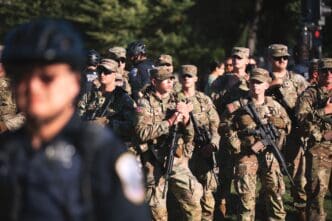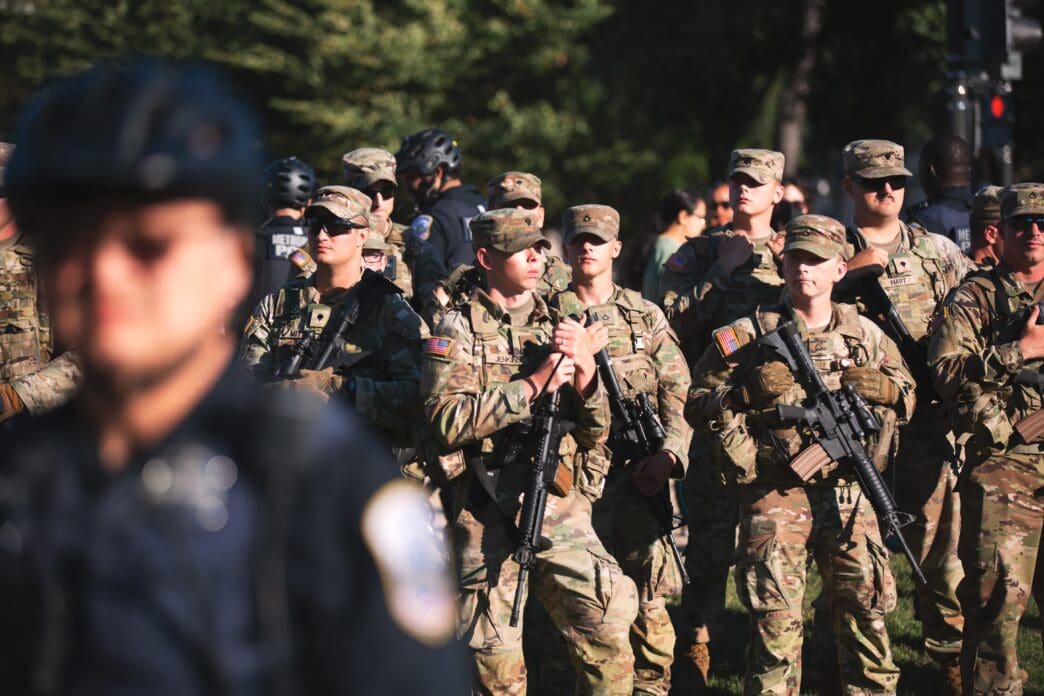Executive Summary
The Story So Far
Why This Matters
Who Thinks What?
A federal judge in Oregon has temporarily blocked President Donald Trump’s plan to deploy federal troops, specifically the National Guard, to Portland, while the White House simultaneously announced the authorization of hundreds of National Guard members for Chicago. These developments unfolded over the weekend of October 5, 2025, intensifying the ongoing disputes between the Trump administration and Democrat-led cities regarding responses to protests against federal law enforcement and immigration policies.
These actions occurred against a backdrop of continuing protests in both cities, primarily directed at federal law enforcement personnel carrying out President Trump’s immigration enforcement agenda. The Trump administration has characterized these demonstrations as “violent protests” led by “domestic terrorists,” arguing for military deployments to safeguard federal personnel and property. However, state and city leaders maintain that the protests have been largely peaceful, with any violence manageable by local authorities.
Judicial Block in Portland
District Judge Karin Immergut issued a temporary restraining order on Saturday, prohibiting President Trump from deploying the National Guard to Portland. Immergut, a Trump appointee, determined that Oregon officials are likely to succeed in their claim that the President overstepped his constitutional authority and violated the Tenth Amendment.
The judge concluded that President Trump appeared to have federalized the Oregon National Guard without constitutional basis, asserting that protests in Portland did not constitute a “danger of a rebellion.” Immergut cited substantial evidence from Oregon attorneys indicating that demonstrations at the Portland ICE facility were not significantly violent prior to the President’s directive.
While acknowledging that recent clashes between protesters and federal officers were “inexcusable,” Judge Immergut stated these incidents did not warrant military intervention and could be managed by regular law enforcement. She cautioned that some arguments from the Trump administration risked blurring the distinction between civil and military federal power, potentially to the nation’s detriment.
The Trump administration promptly filed a notice to appeal the ruling to the Ninth Circuit Court of Appeals. Roughly 200 National Guard troops were undergoing training for a potential Portland deployment, which is now temporarily halted, with the Guard returning under the command of Governor Tina Kotek.
Despite the legal victory for state leaders, protests continued late Saturday outside an Immigration and Customs Enforcement facility in South Portland. Reports from CNN affiliate KATU described federal agents deploying pepper balls, flash bangs, and tear gas to disperse crowds, though Portland police stated their officers observed no crimes or made no arrests.
National Guard Authorized for Chicago
Simultaneously, the White House announced President Trump had authorized 300 members of the Illinois National Guard to deploy to Chicago, citing a need to “protect federal officers and assets.” White House spokesperson Abigail Jackson stated that President Trump would not ignore the “lawlessness plaguing American cities,” attributing it to local leaders’ alleged refusal to intervene.
Hours before this announcement, Illinois Governor JB Pritzker claimed the Trump administration issued an “ultimatum,” demanding he deploy state troops or face federal intervention. Pritzker denounced this as “absolutely outrageous and un-American” to compel a governor to send military troops within state borders against their will.
Tensions in Chicago escalated earlier Saturday during anti-ICE protests when US Customs and Border Protection (CBP) agents fired “defensive shots” at a woman, later identified as Marimar Martinez. According to the Department of Homeland Security (DHS), Martinez rammed her car into a federal law enforcement vehicle and was armed with a semi-automatic weapon.
Martinez is now in FBI custody after being discharged from the hospital, and another individual, Anthony Ian Santos Ruiz, was also taken into custody in connection with the incident. Law enforcement additionally deployed gas canisters at protesters, with footage showing individuals running and shielding themselves.
Federal-Local Tensions Persist
These events underscore the escalating tensions between the Trump administration’s assertive stance on federal intervention in cities and the resistance from local and state authorities. The differing legal interpretations and public safety philosophies continue to fuel a contentious debate over the appropriate use of federal and state forces in managing civil unrest.








